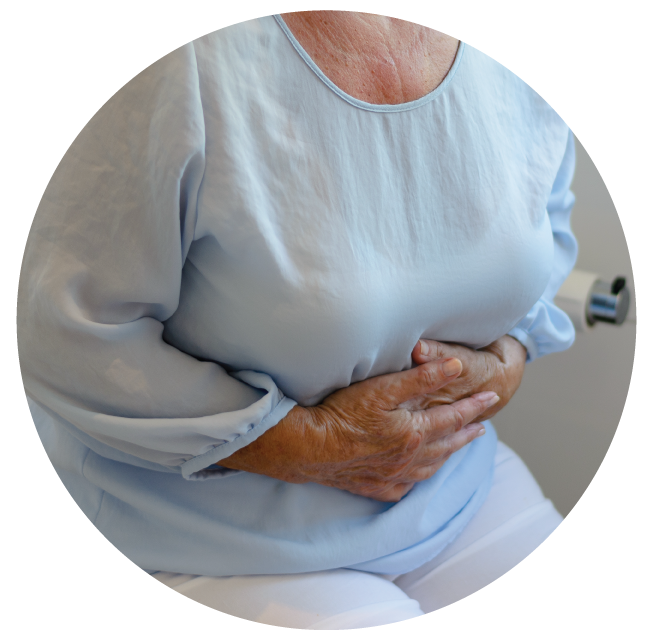
FAST FACTS: Bowel Management for Opioid Use
Opioids are a type of pain medicine. Using opioids often causes constipation. When left untreated, constipation may cause further pain and complications, such as hard to pass stools, breaks or tears in the skin of the anal canal, or hemorrhoids.
For older adults, fully emptying the bowels is of particular concern. Many natural body changes and chronic diseases already impact the ability of older adults to have complete bowel movements. Opioid use can make bowel management difficult by slowing the speed at which food passes through the digestive tract when starting opioid therapy.

Important Medical History
-
Before prescribing opioid treatment, it is important that the healthcare provider has the following information regarding your family member:
- The usual frequency, size, color, and consistency of bowel movements. NOTE: A normal bowel movement should be easy to pass, dark brown, mostly even shaped and toothpaste-like in consistency
- Reviews all medications your family member takes since other medications can also cause constipation, including:
- Some antidepressants, antacids, diuretics, iron
- Medications to treat hypertension, convulsions, and, anticholinergics
- Non-steroidal-anti-inflammatory drugs, such as Advil or Aleve
Possible Interventions:
- Stool softeners (brand name: Colace) to lubricate bowels if stools are hard
- As a precaution, laxatives should be started when opioids are ordered and increased as opioids are increased to encourage bowel movement
- Stimulants such as milk of magnesia will trigger movement in the digestive tract by irritating the intestine and are usually taken at night
- Fiber which will absorb water and increase bulk; this increased bulk will distend the bowel and trigger the urge to have a bowel movement
- Use of medications which add water to the intestine; these will also distend the bowel and trigger the urge for a bowel movement.
- If your family member has no bowel movement for two or three days, their healthcare provider may recommend a suppository, enema, or a laxative (Miralax or magnesium citrate) to help clean the bowels.
Reference:
- Neefjes ECW, van der Wijngaart H, van der Vorst MJDL, Ten Oever D, van der Vliet HJ, Beeker A, Rhodius CA, van den Berg HP, Berkhof J, Verheul HMW. Optimal treatment of opioid induced constipation in daily clinical practice - an observational study. BMC Palliat Care. 2019 Mar 29;18(1):31. doi: 10.1186/s12904-019-0416-7.
Revised January 2022
